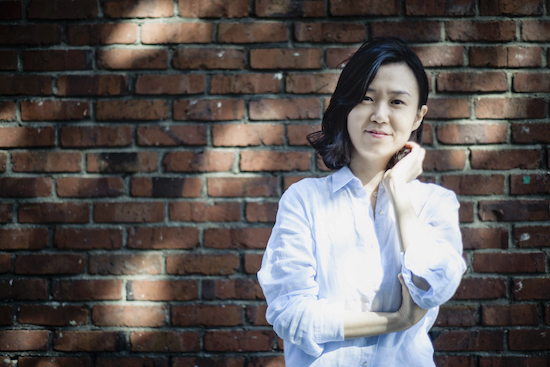Revolutions often begin with a single shot ringing out across acres of tense silence or a lone voice raised in the opposite direction to the swarm of noise around it. In America, one woman spoke out to reclaim her truth, and eventually she and had her fellow warriors brought down one of Hollywood’s longest standing predators. Now there is Kim Jiyoung, Born 1982, a multi-million copy international bestseller by South Korean author, Cho Nam-Joo. An overnight sensation in South Korea (the novel has been translated into many languages, including English by the exceptionally talented Jamie Chang), it has given voice to the feelings and experience of millions of women around the world, and is widely accredited with helping to spark a national movement for equality in Japan.
Stifling, clinical, and relentlessly claustrophobic, Kim Jiyoung, Born 1982 is the story of a young woman born into a society that does not value her, to a mother who wept and apologised for the disaster of giving birth to another daughter “at a time when … aborting females was common practice, as if ‘daughter’ was a medical problem.”
We first meet her as a thirty-three-year-old mother with a one-year old daughter for whom she has given up her career and, with it, a large proportion of the identity she has carved out for herself. There is little immediately remarkable about Kim Jiyoung (her name is the Korean equivalent of the anonymous Jane Doe of the West) except for the fact that she has begun to experience something akin to astral projection, briefly taking on the personas of her mother, and a university friend who died years before. After an episode in front of her in-laws, Jiyoung’s husband visits a psychiatrist on her behalf and books her an appointment, an act which Jiyoung does not question, but merely thanks him for. The rest of the novel is told from the perspective of a psychiatrist’s notes taken during their sessions and the cold appraisal of Jiyoung’s life that this allows for is deeply effective.
Annotated throughout with facts taken from Korean newspapers, government reports and demographic data captured from the time, this slender novel proceeds to unpick and reveal the deeply ingrained misogyny and inequalities which exist in modern South Korean society: “The percentage of female managers has increased steadily but slowly… it’s not even two out of ten yet” (2015 reports on employment and labor, Ministry of Labor)
If the style of the novel makes you uncomfortable, or perhaps strips some of the ‘cool’ shine from your perception of South Korea, then it is safe to say you are reading it correctly. This is not a novel which seeks to comfort and distract, it is a bold, speculative work that blends the life of one fictional character with the truths faced by millions of real women.
As with all sensational novels, particularly those written for women, by women, it has faced criticism and backlash – including a crowd-funding mission to produce a book with the title: Kim Ji-hoon, Born 1990 to show the supposed rise in misandry that South Korea has experienced in recent years. Thankfully this has not appeared.
Part of what makes this novel so gripping is the minutely-observed detail of Jiyoung’s life, each ordinary step, rendered painful by the cards stacked against her. Cho’s eye for the horrors of small-scale aggression is unblinking and utterly fierce throughout. Even small victories, such as being allowed to swap desk-mates after suffering months of bullying, are tainted: What he’d put her through was awful enough, and now the teacher was making her out to be a bad child who misunderstood her friend. Each such occurrence trembles with the knowledge that no matter how carefully Jiyoung follows the rules, nor how hard she works, the society she lives in will not allow her access to dignity, personal fulfilment, and self-esteem that is so readily heaped upon her male counterparts.
On of the most disturbing examples of this within the novel is a scene in which teenage Jiyoung is stalked home by an older classmate, his presence becomes increasingly sinister as Jiyoung gestures frantically to a female stranger on the bus, asking to use her phone so that she can text her father to come and meet her at the bus stop. This harrowing sequence of events is Jiyoung’s first experience of the predatory sexual behaviour of men, and the threat that they pose to her, and is a situation that all too many women have faced similar versions of. There are few women who will read this small section of Kim Jiyoung, Born 1982 and not feel the heart-pounding, gut-wrenching tug of understanding.
To read this book, to truly engage with it, is to offer yourself up to the helplessness of Jiyoung’s situation and accept that you will not be delivered to the other side unscathed. Nor should you be. This novel is an act of resistance and a call to arms for the millions of women who deserve better, and it is a testament to the bravery and deep humanism of its author.
Kim Jiyoung, Born 1982 by Cho Nam-Joo, translated by Jamie Chang is published by Scribner


